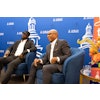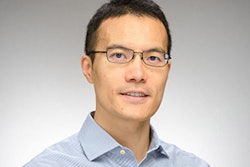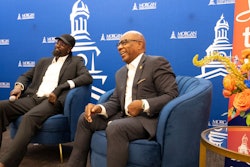Bringing Color to the International Intellectual Table
By Dr. Kimberly Battle-Walters
There has never been a time like today where the need to understand other cultures has been so paramount. With a world population exceeding 6 billion people, a global economy that is deeply interconnected, and precarious political ideologies that instigate wars — we fundamentally need to stimulate a milieu that seeks to understand and foster an appreciation of all cultures and cultural differences. Academia is one such environment, and African American scholars are one segment of the population that has the sensitivity and the opportunity to raise the discourse on international relations.
Thinking beyond our national borders, we as educators and scholars can encourage our students and each other to be world citizens and promote global discussions through research. One avenue through which these global dialogues can take place is through the Fulbright experience.
In the later half of 2002, I had the opportunity to serve in South Africa for six months as a Fulbright Scholar teaching in the departments of social work and sociology at Rand Afrikaans University. As an African American woman, this was a unique experience because historically this university only catered to White South Africans who spoke Afrikaans. At the university, I conducted research on race, class and gender in the New South Africa from a woman’s perspective. In my case study, I interviewed a small sample of women from across racial and economic lines about how life had improved, worsened or remained the same for them since 1994 in a post-apartheid, democratic South Africa.
In addition to teaching, conducting research and being a “cultural ambassador,” I was able to conduct workshops on diversity at the World Summit, provide seminars and talks in the community, meet Archbishop Desmond Tutu, have tea with the queen mother of Lesotho, and discuss with African leaders from throughout the continent what they were doing to better serve their communities. The opportunities were limitless and were only constrained by the brevity of my time in South Africa. The Fulbright program was useful in opening many doors for me — intellectually, professionally, socially and spiritually.
Enacted in 1946 by Sen. J. William Fulbright, the main purpose of the Fulbright Scholars program is to improve international relations post-World War II. Each year, approximately 800 scholars and professionals from the United States are funded to teach and conduct research in over 140 countries around the world, and in turn international scholars are invited to the United States, with the goal being to expand awareness, dialogue and acceptance on the part of each participating nation.















